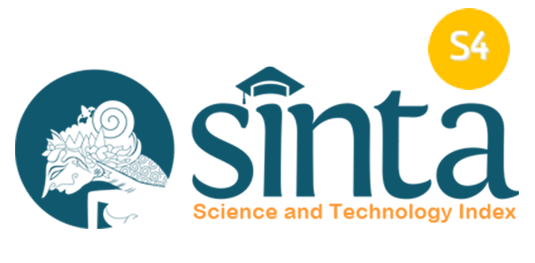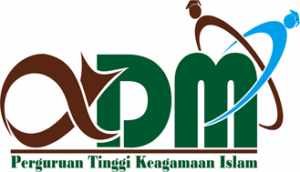Mathematics students’ writing skills: Assesment in higher education with Rasch model
Abstract
The aim of this research is to describe the students’ scientific writing skills of mathematics education. This research is descriptive qualitative research. Research subject is choosen by using purposive sampling technique. Research subject is choosen based on variety of batch, grade point average (GPA) dan Thesis Processing Duration (TPD). Data collection techniques in this research are document studies (documentation methods) and interviews. The document study was carried out by 2 researchers (chairman and researcher members) and 2 other lecturers of Mathematics Education Study Program to obtain data about writing scientific work for research subjects. The interview was conducted after the results of the first data analysis were obtained as confirmation media and deeper exploration of the profile of the research subjects. This study provides an overview of the carrying capacity of the GPA characteristics, the value of Indonesian Language, the value of Research Methods, and TPD. The four characteristics do not significantly support the students’ cientific writing skills of the mathematics education study program.
Keywords
Full Text:
PDFReferences
Agustiani, R. (2015). Profil pengetahuan pedagogik konten mahasiswa calon guru matematika dalam melaksanakan pembelajaran dengan pendekatan PMRI. Jurnal Pendidikan Matematika RAFA, 1(2), 288–305.
Almaden, D. O. (2006). An analysis of the topical structure of paragraphs written by Filipino students. The Asia-Pacific Education Research, 15(1), 127–153.
Barbot, B., Tan, M., Randi, J., Santa-Donato, G., & Grigorenko, E. L. (2012). Essential skills for creative writing: Integrating multiple domain-specific perspectives. Thinking Skills and Creativity, 7(3), 209-223.
Barkl, S., Porter, A., & Ginns, P. (2012). Cognitive training for children: Effects on inductive reasoning, deductive reasoning, and mathematics achievement in an Australian school setting. Psychology in the Schools, 49(9), 828-842.
Calkins, L., & Ehrenworth, M. (2016). Growing extraordinary writers: Leadership decisions to raise the level of writing across a school and a district. The Reading Teacher, 70(1), 7-18.
Clarke, P., Schull, D., Coleman, G., Pitt, R., & Manathunga, C. (2013). Enhancing professional writing skills of veterinary technology students: Linking assessment and clinical practice in a communications course. Assessment & Evaluation in Higher Education, 38(3), 273-287.
Creswell, J. W. (2012). Educational research: Planning, conducting, and evaluating quantitative and qualitative research (4th ed.). Boston, MA: Pearson.
Creswell, J. W., & Clark, V. L. P. (2017). Designing and conducting mixed methods research. Thousand Oaks, CA: Sage Publications.
Derish, P. A., Maa, J., Ascher, N. L., & Harris, H. W. (2007). Enhancing the mission of academic surgery by promoting scientific writing skills. Journal of Surgical Research, 140(2), 177-183.
Ebadi, S., & Rahimi, M. (2018). An exploration into the impact of WebQuest-based classroom on EFL learners’ critical thinking and academic writing skills: A mixed-methods study. Computer Assisted Language Learning, 31(5–6), 617–651. https://doi.org/10.1080/09588221.2018.1449757
Greenberg, K. P. (2015). Rubric use in formative assessment: A detailed behavioral rubric helps students improve their scientific writing skills. Teaching of Psychology, 42(3), 211-217.
Hartati, T. (2017). Conferencing approach in promoting writing abilitiy: A classroom action research study on language creative writing in Indonesian language. Indonesian Journal of Applied Linguistics, 7(2), 294-301.
Herbst, P. G. (2002). Engaging students in proving: A double bind on the teacher. Journal for Research in Mathematics Education, 33(3), 176-203.
Hintikka, J. (2012). Which mathematical logic is the logic of mathematics?. Logica Universalis, 6, 459-475.
Ohri, M., & Dawes, K. (2009). Successful abstract writing: An essential skill for medical writers. The write stuff, 18(1), 27-28.
Park, J., & Han, S. (2002). Using deductive reasoning to promote the change of students' conceptions about force and motion. International Journal of Science Education, 24(6), 593-609.
Pelger, S., & Sigrell, A. (2016). Rhetorical meta-language to promote the development of students’ writing skills and subject matter understanding. Research in Science & Technological Education, 34(1), 25-42.
Prahmana, R. C. I. (2017). Design research (Teori dan implementasinya: Suatu pengantar). Jakarta: Rajawali Pers.
Prahmana, R. C. I., & Kusumah, Y. S. (2016). The hypothetical learning trajectory on research in mathematics education using research-based learning. Pedagogika, 123(3), 42-54.
Pusat Pembinaan dan Pengembangan Bahasa. (1992). Pedoman umum ejaan Bahasa Indonesia yang disempurnakan dan pedoman umum pembentukan istilah. Bandung: Pustaka Setia.
Rani, R., Niswah, C., & Agustiani, R. (2017). Penerapan metode (TS-TS) untuk melihat aktivitas siswa pada pembelajaran matematika. Mosharafa: Jurnal Pendidikan Matematika, 6(3), 345-356.
Skulmoski, G. J., Hartman, F. T., & Krahn, J. (2007). The Delphi method for graduate research. Journal of Information Technology Education, 6(1), 1-21.
Sumintono, B., & Widhiarso, W. (2014). Aplikasi model Rasch untuk penelitian ilmu-ilmu sosial. Cimahi: Trim Komunikata.
Sumintono, B., & Widhiarso, W. (2015). Aplikasi pemodelan Rasch pada assessment pendidikan. Cimahi: Trim Komunikata.
Watters, J. J., & English, L. D. (1995). Children's application of simultaneous and successive processing in inductive and deductive reasoning problems: Implications for developing scientific reasoning skills. Journal of Research in Science Teaching, 32(7), 699-714.
Young, J. C., Rose, D. C., Mumby, H. S., Benitez‐Capistros, F., Derrick, C. J., Finch, T., ... & Parkinson, S. (2018). A methodological guide to using and reporting on interviews in conservation science research. Methods in Ecology and Evolution, 9(1), 10-19.
DOI: https://doi.org/10.18860/ijtlm.v1i2.6749
Refbacks
- There are currently no refbacks.
Copyright (c) 2020 International Journal on Teaching and Learning Mathematics

This work is licensed under a Creative Commons Attribution-NonCommercial-ShareAlike 4.0 International License.
Indexed by :
.png)
.jpg)
.png)

.jpg)


